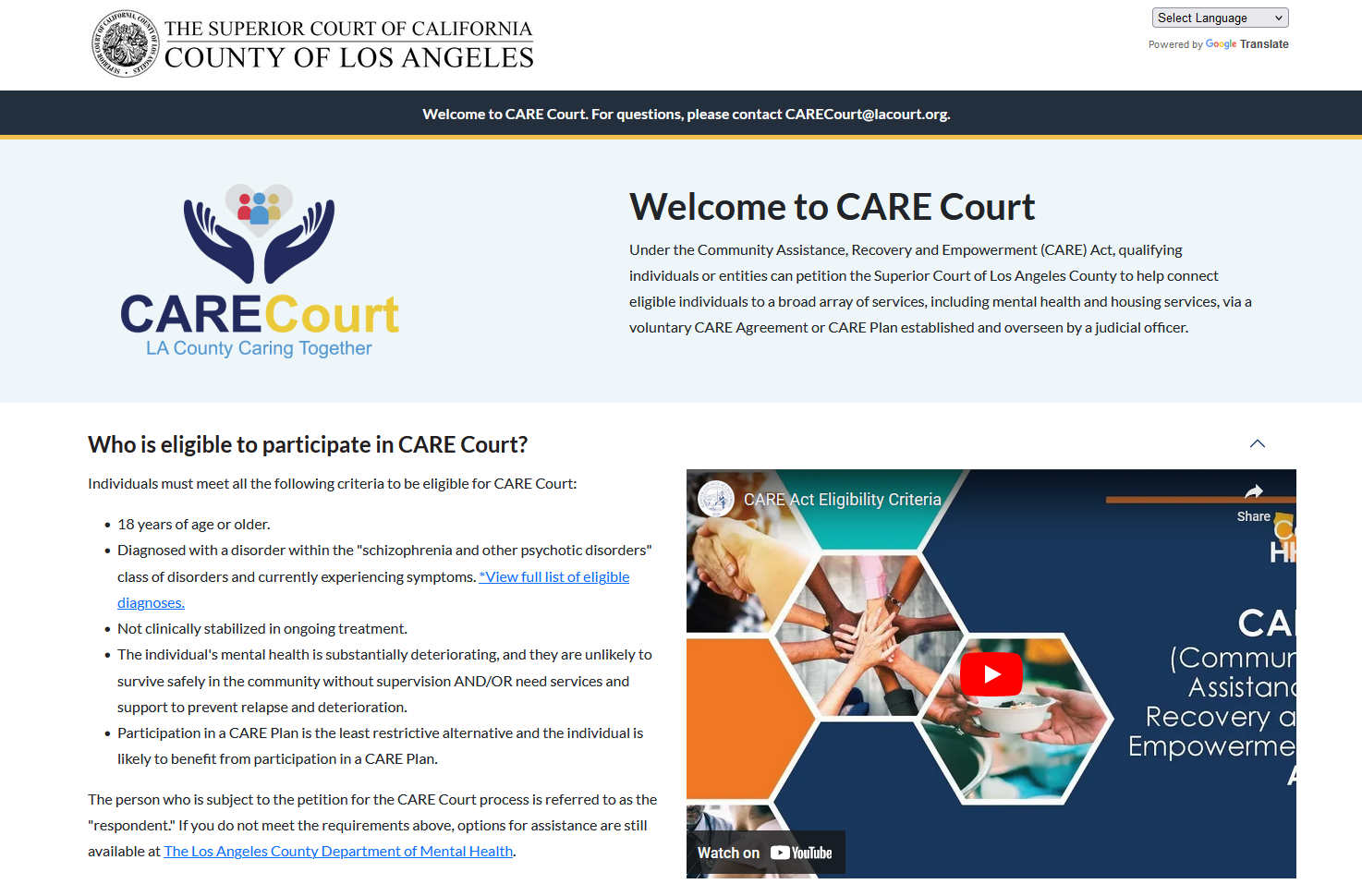In a groundbreaking move aimed at addressing the intersection of mental health and the legal system, California has introduced the Containment, Assessment, Recovery, and Engagement (CARE) Court. This innovative approach marks a significant departure from traditional courtroom proceedings by integrating mental health care into the legal process. While hailed as a progressive step towards providing comprehensive support for individuals with mental health issues, the CARE Court has sparked intense debate and scrutiny, raising questions about its effectiveness, ethical implications, and the broader implications for the justice system.
The CARE Court operates on the premise that many individuals involved in the criminal justice system grapple with underlying mental health conditions that may contribute to their offenses. Rather than solely focusing on punitive measures, this specialized court seeks to address the root causes of criminal behavior by providing participants with access to mental health treatment and support services. Through a collaborative approach involving judges, mental health professionals, attorneys, and community organizations, the CARE Court aims to facilitate rehabilitation and reduce recidivism among individuals with mental health needs.
Central to the CARE Court model is the concept of therapeutic jurisprudence, which emphasizes the therapeutic effects of legal interventions on participants' well-being. Instead of conventional courtroom proceedings characterized by adversarial litigation, the CARE Court adopts a more collaborative and rehabilitative approach. Participants are closely monitored by a multidisciplinary team and are required to adhere to personalized treatment plans tailored to their specific mental health needs. These plans may include counseling, medication management, substance abuse treatment, and vocational training, among other services.
Proponents of the CARE Court argue that it offers a more humane and effective alternative to incarceration for individuals whose criminal behavior is rooted in mental illness. By addressing the underlying mental health issues driving their actions, the court aims to break the cycle of recidivism and promote long-term recovery and reintegration into society. Moreover, proponents contend that the CARE Court helps alleviate the strain on the criminal justice system by diverting individuals away from jails and prisons and towards appropriate treatment settings.
However, the CARE Court's implementation has not been without controversy and criticism. Some skeptics raise concerns about the potential for coercion and involuntary treatment, particularly for participants who may not fully understand or consent to the terms of their involvement. Critics also argue that the CARE Court may inadvertently perpetuate the medicalization of social problems, shifting responsibility away from systemic issues such as poverty, homelessness, and substance abuse.
Furthermore, there are questions about the adequacy of funding and resources to support the comprehensive mental health services required by CARE Court participants. In a state already grappling with significant challenges in its mental health care system, the successful implementation and sustainability of the CARE Court model hinge on sufficient funding, robust community partnerships, and a commitment to evidence-based practices.
As California's CARE Court continues to evolve and expand, it serves as a microcosm of broader debates surrounding the intersection of mental health and the legal system. While it represents a promising step towards holistic and compassionate approaches to justice, its success ultimately depends on addressing complex ethical, logistical, and systemic challenges. By fostering dialogue and collaboration among stakeholders, California's CARE Court offers a potential path forward in reimagining the relationship between mental health care and the legal system.
sources:
